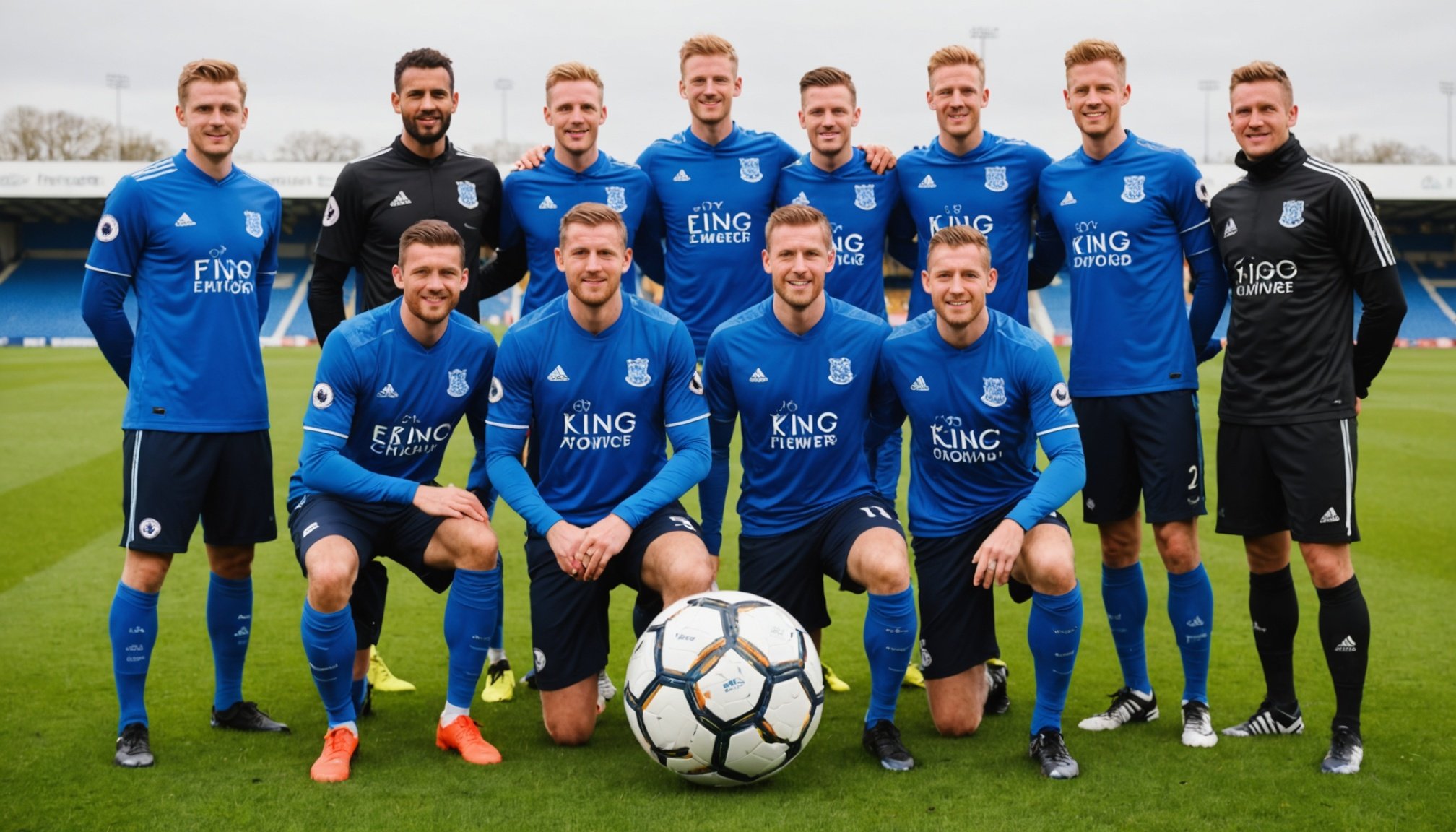In the competitive landscape of UK football, clubs are constantly seeking innovative ways to enhance their community presence while simultaneously boosting their financial health. One of the most effective strategies is to forge partnerships with local businesses. Such collaborations not only contribute to the club’s sustainability but also foster local economic growth. In this article, we will explore how UK football clubs can create effective partnerships with local businesses, ensuring mutual benefit through strategic alliances that leverage the strengths and resources of both parties.
The Importance of Local Partnerships
Building strong relationships with local businesses offers numerous benefits to football clubs. Firstly, these partnerships enhance the club’s community ties, creating a sense of belonging among fans and local residents. When clubs engage with businesses within their vicinity, they foster a supportive environment that encourages local loyalty. This loyalty can translate into increased attendance at matches and a stronger fan base, which is crucial for the club’s financial stability.
Also to read : What strategies do successful UK football teams employ to recover from defeats?
Moreover, local businesses can provide valuable resources to clubs, such as sponsorship, marketing support, and promotional opportunities. For instance, a local restaurant might offer discounts to season ticket holders, while a nearby hotel could cater to visiting teams or fans. By collaborating with these businesses, clubs can create unique experiences for their supporters, enhancing the overall matchday atmosphere.
Additionally, such partnerships often involve cross-promotional activities that can significantly expand the reach of both the club and the local business. Joint events, community initiatives, and shared branding efforts can attract new audiences, benefiting both parties. As football clubs strive to remain relevant in an ever-evolving market, establishing effective partnerships with local enterprises becomes essential for long-term success.
Also to discover : How can mental health support be integrated into the training of UK football players?
Identifying Suitable Local Businesses
The first step in creating successful partnerships is identifying the right local businesses that align with the club’s values and objectives. Clubs should start by compiling a list of local enterprises that share a commitment to community engagement and have a track record of supporting local initiatives. This could include restaurants, retailers, service providers, and even educational institutions.
It is essential to evaluate each potential partner’s reputation within the community. A business that is well-regarded and actively participates in local events is likely to attract fans’ support, enhancing the partnership’s credibility. Clubs can also consider businesses that have previously sponsored community events or engaged in philanthropic efforts. Such partners are often more receptive to collaboration, understanding the mutual benefits that can arise from a strong partnership.
Once suitable businesses have been identified, clubs should approach them with a clear proposal that outlines the potential benefits of a partnership. This proposal should highlight opportunities for co-branding, joint marketing campaigns, and community engagement strategies. By presenting a well-thought-out plan, clubs can demonstrate their commitment to a mutually beneficial relationship, making it more appealing for local businesses to come on board.
Developing Collaborative Marketing Initiatives
One of the most effective ways to solidify a partnership between a football club and a local business is through collaborative marketing initiatives. By pooling resources and expertise, both parties can create campaigns that resonate with the community while promoting their respective brands.
For instance, clubs can work with local businesses to sponsor matchdays or community events. This could involve co-hosting events that allow fans to interact with local businesses while also enjoying football-related activities. Picture a family fun day where local vendors showcase their products, food stalls are set up, and activities for children are organized, all in conjunction with a match. Such events not only draw crowds but also enhance the visibility of the businesses involved.
Additionally, clubs can utilize their digital platforms to promote local businesses. Social media shout-outs, featured articles on the club’s website, and email newsletters can serve as effective channels to highlight the partnership. In return, local businesses can promote the club within their own marketing efforts, creating a reciprocal relationship that benefits both parties.
Moreover, clubs can leverage local business partnerships for exclusive promotions. For example, offering discounts or special offers to fans who show their match tickets at a local business creates a win-win situation. Fans feel valued and appreciated, while businesses gain new customers who may not have visited otherwise. Collaborating on marketing initiatives allows clubs and local businesses to create a strong brand presence in the community that encourages loyalty and engagement.
Engaging the Community through Joint Initiatives
Beyond marketing, joint community initiatives can significantly enhance the relationship between football clubs and local businesses. Such initiatives help to foster goodwill and demonstrate the commitment of both parties to the community’s development.
Clubs can collaborate with local businesses on social responsibility programs. This could involve organizing charity events, fundraising efforts, or community service projects that address local issues. For example, clubs might partner with local health services to promote physical fitness and healthy living among youth, leading workshops or sports days that encourage participation in sports.
Local businesses can provide resources, such as volunteers, funding, or in-kind donations, while clubs can offer their venue, promotional channels, and fan engagement. This creates a powerful platform for both entities to showcase their commitment to the local community and generate positive publicity.
Furthermore, joint initiatives can serve as a means of gathering feedback from the community. Clubs and businesses can host forums or feedback sessions to understand the needs and preferences of local residents. This information can inform future partnerships and initiatives, ensuring that both clubs and businesses remain relevant and responsive to community needs.
Measuring Success and Sustaining Partnerships
Creating effective partnerships is an ongoing process that requires regular evaluation to ensure both parties are achieving their goals. Establishing clear metrics for success is critical. These metrics could include increased footfall to local businesses, enhanced matchday attendance, or elevated social media engagement. Clubs should work closely with their partners to set these targets and monitor progress over time.
Regular communication is essential to sustaining these partnerships. Clubs should maintain an open dialogue with local businesses, providing updates on initiatives, discussing new ideas, and addressing any challenges that may arise. This collaborative approach fosters a sense of teamwork and shared responsibility for the partnership’s success.
In addition to regular evaluations, clubs should celebrate the successes of their partnerships. Recognizing achievements through joint press releases, social media highlights, or community events can strengthen the bond between the club and local businesses. This not only boosts morale but also promotes the partnership to the wider community, encouraging further engagement and support.
By focusing on continuous improvement and open communication, UK football clubs can ensure their partnerships with local businesses are not only effective but also sustainable in the long term.
In conclusion, effective partnerships between UK football clubs and local businesses can create significant benefits for both parties and the wider community. By understanding the importance of local partnerships, identifying suitable businesses, developing collaborative marketing initiatives, engaging in community initiatives, and measuring success, clubs can foster relationships that thrive and contribute to mutual growth. As the football landscape continues to evolve, embracing local partnerships will be critical in driving both community engagement and financial stability, ensuring that both football clubs and local businesses flourish together.











